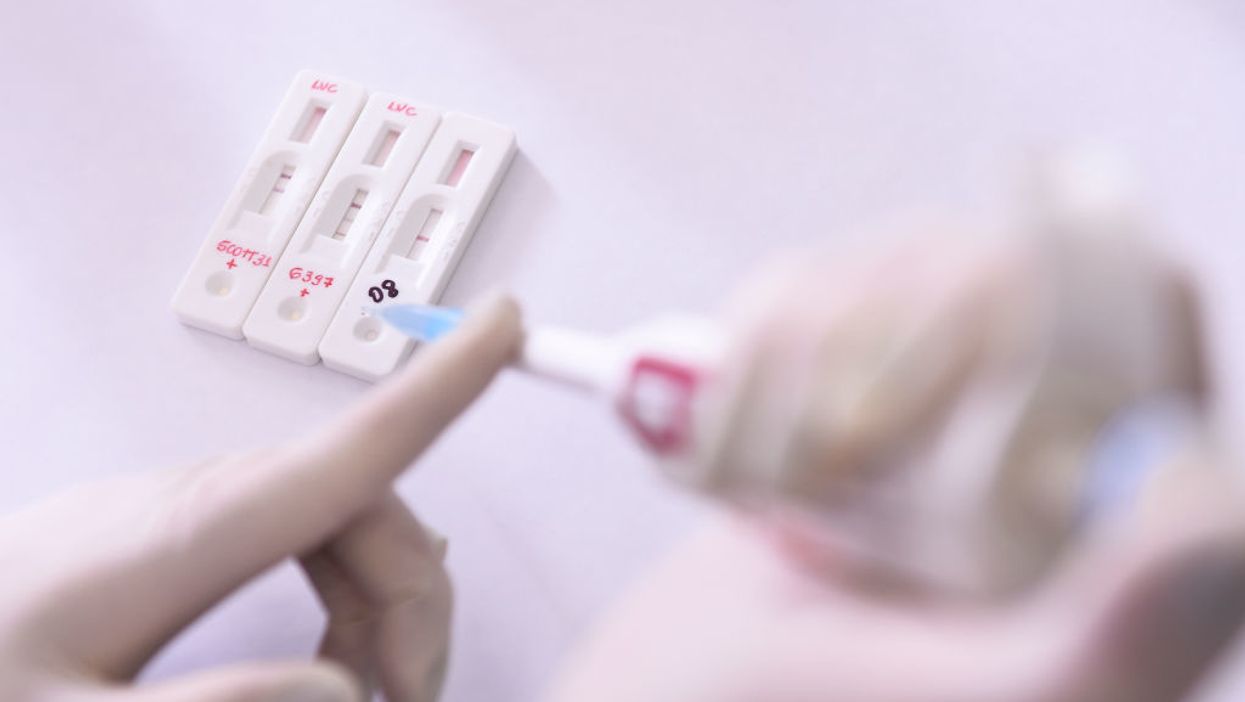
Photo by Pedro Vilela/Getty Images

Now they are hoping it will be fast-tracked by the FDA
Researchers at the University of Pittsburgh School of Medicine believe they have developed a potential vaccine for COVID-19.
The researchers announced the news in a study published in EBioMedicine Thursday, calling the potential vaccine a "promising immunization strategy" and noting that it could be introduced and distributed quickly enough to "significantly impact the spread of disease."
The vaccine, called PittCoVacc, is made of dissolvable sugar and bits of a particular protein known as the spike protein, which the virus uses to attach to cells and infect its host. When tested in mice, it was found to produce what is thought to be the sufficient number of antibodies needed to counteract the virus.
The researchers said they were able to move so quickly because of their past work developing potential vaccines for similar coronaviruses such as Severe Acute Respiratory Syndrome (SARS) and Middle East Respiratory Syndrome (MERS).
"We had previous experience on SARS-CoV in 2003 and MERS-CoV in 2014. These two viruses, which are closely related to SARS-CoV-2, teach us that a particular protein, called a spike protein, is important for inducing immunity against the virus," said co-senior author Andrea Gambotto, M.D., associate professor of surgery at the Pitt School of Medicine.
"We knew exactly where to fight this new virus," he added.
The possible vaccine was developed the old-fashioned way "using lab-made pieces of viral protein to build immunity," according to a news release from the school — the same way current flu shots work. But it is delivered in a novel way, using a small fingertip-sized patch, similar to a BandAid. The patch goes on and then 400 tiny needles deliver the vaccine into the skin, where the immune reaction is the strongest.
"It's actually pretty painless — it feels kind of like Velcro," co-senior author Louis Falo, M.D., Ph.D., professor and chair of dermatology at Pitt's School of Medicine and UPMC, said.
The researchers are now seeking approval from the U.S. Food and Drug Administration in order to advance to testing in humans, and they hope that the FDA will fast-track the normally lengthy process.
"Testing in patients would typically require at least a year and probably longer," Falo said. "This particular situation is different from anything we've ever seen, so we don't know how long the clinical development process will take. Recently announced revisions to the normal processes suggest we may be able to advance this faster."
Pitt Unveils Possible Coronavirus Vaccineyoutu.be